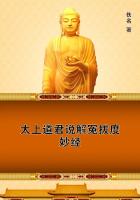Contact with these gave Terry Sheehan a semiprofessional tone.The more conservative of her townspeople looked at her askance.There never had been an evil thing about Terry, but Wetona considered her rather fly.Terry's hair was very black, and she had a fondness for those little, close-fitting scarlet turbans.Terry's mother had died when the girl was eight, and Terry's father had been what is known as easygoing.A good- natured, lovable, shiftless chap in the contracting business.He drove around Wetona in a sagging, one-seated cart and never made any money because he did honest work and charged as little for it as men who did not.His mortar stuck, and his bricks did not crumble, and his lumber did not crack.Riches are not acquired in the contracting business in that way.Ed Sheehan and his daughter were great friends.When he died (she was nineteen) they say she screamed once, like a banshee, and dropped to the floor.
After they had straightened out the muddle of books in Ed Sheehan's gritty, dusty little office Terry turned her piano-playing talent to practical account.At twenty-one she was still playing at the Bijou, and into her face was creeping the first hint of that look of sophistication which comes from daily contact with the artificial world of the footlights.
There are, in a small Midwest town like Wetona, just two kinds of girls.Those who go downtown Saturday nights, and those who don't.Terry, if she had not been busy with her job at the Bijou, would have come in the first group.She craved excitement.There was little chance to satisfysuch craving in Wetona, but she managed to find certain means.The traveling men from the Burke House just across the street used to drop in at the Bijou for an evening's entertainment.They usually sat well toward the front, and Terry's expert playing, and the gloss of her black hair, and her piquant profile as she sometimes looked up toward the stage for a signal from one of the performers caught their fancy, and held it.
She found herself, at the end of a year or two, with a rather large acquaintance among these peripatetic gentlemen.You occasionally saw one of them strolling home with her.Sometimes she went driving with one of them of a Sunday afternoon.And she rather enjoyed taking Sunday dinner at the Burke Hotel with a favored friend.She thought those small-town hotel Sunday dinners the last word in elegance.The roast course was always accompanied by an aqueous, semifrozen concoction which the bill of fare revealed as Roman Punch.It added a royal touch to the repast, even when served with roast pork.
Terry was twenty-two when Orville Platt, ****** his initial Wisconsin trip for the wholesale grocery house he represented, first beheld her piquant Irish profile, and heard her deft manipulation of the keys.Orville had the fat man's sense of rhythm and love of music.He had a buttery tenor voice, too, of which he was rather proud.
He spent three days in Wetona that first trip, and every evening saw him at the Bijou, first row, center.He stayed through two shows each time, and before he had been there fifteen minutes Terry was conscious of him through the back of her head.Orville Platt paid no more heed to the stage, and what was occurring thereon, than if it had not been.He sat looking at Terry, and waggling his head in time to the music.Not that Terry was a beauty.But she was one of those immaculately clean types.That look of fragrant cleanliness was her chief charm.Her clear, smooth skin contributed to it, and the natural penciling of her eyebrows.But the thing that accented it, and gave it a last touch, was the way in which her black hair came down in a little point just in the center of her forehead, where hair meets brow.It grew to form what is known as a cowlick.(A prettier name for it is widow's peak.) Your eye lighted on it, pleased, and from it traveled its gratified way down her white temples, past her littleears, to the smooth black coil at the nape of her neck.It was a trip that rested you.
At the end of the last performance on the night of his second visit to the Bijou, Orville waited until the audience had begun to file out.Then he leaned forward over the rail that separated orchestra from audience.
"Could you," he said, his tones dulcet, "could you oblige me with the name of that last piece you played?"Terry was stacking her music."George!" she called to the drum."Gentleman wants to know the name of that last piece." And prepared to leave.
"`My Georgia Crackerjack,'" said the laconic drum.
Orville Platt took a hasty side step in the direction of the door toward which Terry was headed."It's a pretty thing," he said fervently."An awful pretty thing.Thanks.It's beautiful."Terry flung a last insult at him over her shoulder:"Don't thank ME for it.I didn't write it."Orville Platt did not go across the street to the hotel.He wandered up Cass Street, and into the ten-o'clock quiet of Main Street, and down as far as the park and back."Pretty as a pink! And play!...And good, too.Good."A fat man in love.
At the end of six months they were married.Terry was surprised into it.Not that she was not fond of him.She was; and grateful to him, as well.For, pretty as she was, no man had ever before asked Terry to be his wife.They had made love to her.They had paid court to her.They had sent her large boxes of stale drugstore chocolates, and called her endearing names as they made cautious declarations such as:














